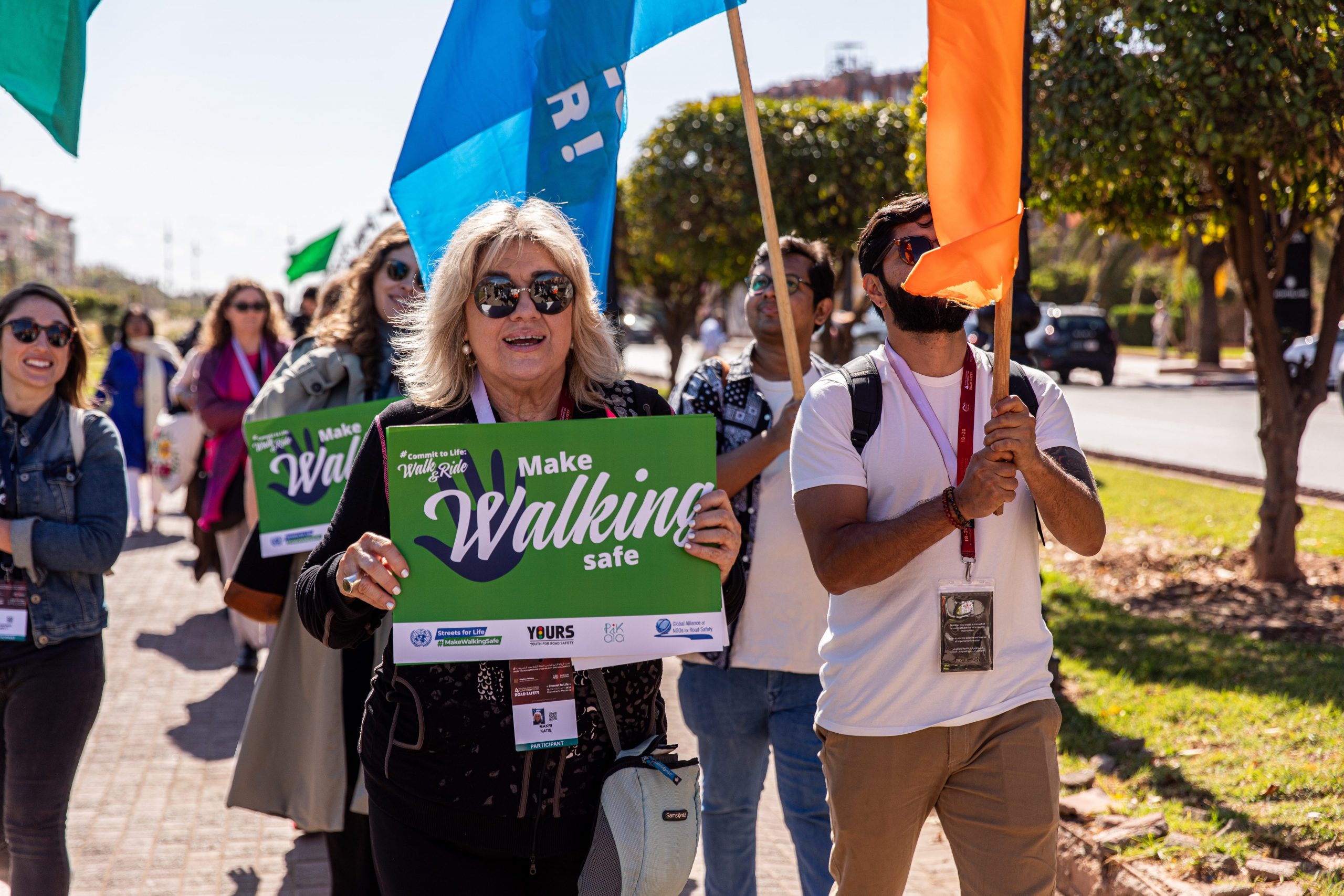
A UN Decade of Sustainable Transport 2026–2035 will kick off in November 2025, aiming to align transport systems with sustainability goals. We welcome its launch just as we near the midpoint of the Decade of Action for Road Safety 2021–2030. Road safety is our top priority, and the Decade of Sustainable Transport gives Alliance members a broader platform to accelerate progress towards halving road deaths and injuries.
Transport can only be sustainable if people are at the heart of it and are safe while navigating their daily lives. Children crossing the road while walking to school in Azerbaijan; market vendors cycling home in Zimbabwe; and grandparents walking to clinics in Argentina; if these journeys remain dangerous, our transport system isn’t sustainable, no matter how “green” or efficient it claims to be. By ensuring safe journeys for these children, market vendors, and grandparents alike, we put people first and strengthen environmental stewardship, promote equity, and protect public health.
Evidence shows that proven road safety measures support sustainability. For instance, 30 km/h zones, speed reduction, and traffic calming interventions like narrower lanes and roundabouts promote safety while reducing noise and air pollution, increasing economic activity, and encouraging sustainable transport modes like walking and cycling. This benefits public health, equity, and climate goals.
Therefore, in implementing the Decade of Sustainable Transport, road safety is critical and should not be viewed as an add-on. We hope that road safety forms part of the core considerations as evidence-based road safety interventions, such as 30 km/h zones, pedestrian and cycling infrastructure, speed reduction, and traffic calming, are essential to sustainable transport. These interventions should be directly factored into investment planning for sustainable transport infrastructure in a manner that is transparent and accountable to the people who use these transport modes, rather than perpetuating car-centric, unsafe infrastructure.
Road safety NGOs are often the bridge between global commitments and local realities, and amplifying community voices. They play important roles in ensuring accountability and monitoring the implementation of evidence-based interventions, such as 30 km/h and traffic calming, that are essential to sustainable transport planning. Road safety NGOs can play important roles in achieving the targets the Decade of Sustainable Transport will set by ensuring that safety remains central to sustainable transport planning. NGOs also help hold governments accountable by tracking investments, monitoring implementation gaps, and amplifying community voices in decision-making processes. As the implementation plan for the Decade of Sustainable Transport takes shape, meaningful inclusion of road safety NGOs will be essential to building systems that are not only sustainable on paper but safe, inclusive and resilient in practice.